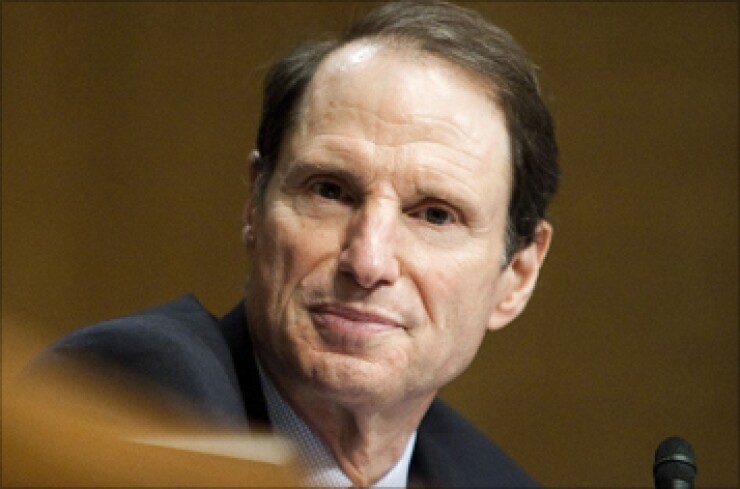
WASHINGTON -- Sen. Ron Wyden, the incoming chairman of the Senate Finance Committee, said Friday that he is a very strong supporter of Build America Bonds to finance infrastructure projects.
The Democrat from Oregon, slated to replace Sen. Max Baucus, D-Mont., as committee chairman, essentially took credit for provisions in the American Recovery and Reinvestment Act, which created BABs, noting they "sold like hotcakes."
About $182 billion of direct-pay BABs were issued during 2009 and 2010 before the program expired.
"There is a market out there folks," he told those attending a Tax Policy Center event at the University of Southern California's Gould School of Law in Los Angeles. The event was entitled: Is Tax Policy the Cause, the Cure, or Irrelevant."
BABs were taxable bonds for which issuers received payments from the Treasury Dept. equal to 35% of their interest costs. The subsidy rates on some of those bonds have been cut due to sequestration and offsets for other federal funds the issuer owes.
"For years I have been pounding on a rock pile that there were ways to generate more investment for infrastructure," Wyden said, adding that congressional staff came to him to put provisions in ARRA to address infrastructure funding problems.
Wyden said no lawmaker is going to favor increasing the gas tax, which along with other fuel taxes is used to fund the dwindling Highway Trust Fund. The HTF falls within the finance committee's jurisdiction because it is supported with tax revenues.
One individual in the audience asked him what solutions there are to funding transportation as the HTF is about to become insolvent. But Wyden said, "I do not want to get in front of my colleagues on this." He said he has been meeting with Sen. Barbara Boxer, D-Calif., who chairs the Senate Environment and Public Works Committee, which also has jurisdiction over the HTF.
Wyden also said one of the first things he wants to do on taxes is extend expiring tax provisions through 2014 as Senate Majority Leader Harry Reid, D-Nev., has proposed in a pending bill, and then use that as a "bridge" to comprehensive tax reform. These so called extenders include: the tax deduction for state and local general sales taxes in lieu of state and local income taxes; the authority to issue qualified zone academy bonds; and an increased level of spirit excise tax payments into the Treasuries of Puerto Rico and the Virgin Islands.
Wyden called the current tax code "a dysfunctional rotting mess of a carcass" and said it needs to be simplified. It also bemoaned what he called the Neiman Marcus/Dollar Store economy that has left the middle class behind.
"I want a tax code in America where everybody has a chance to get ahead," he said.





